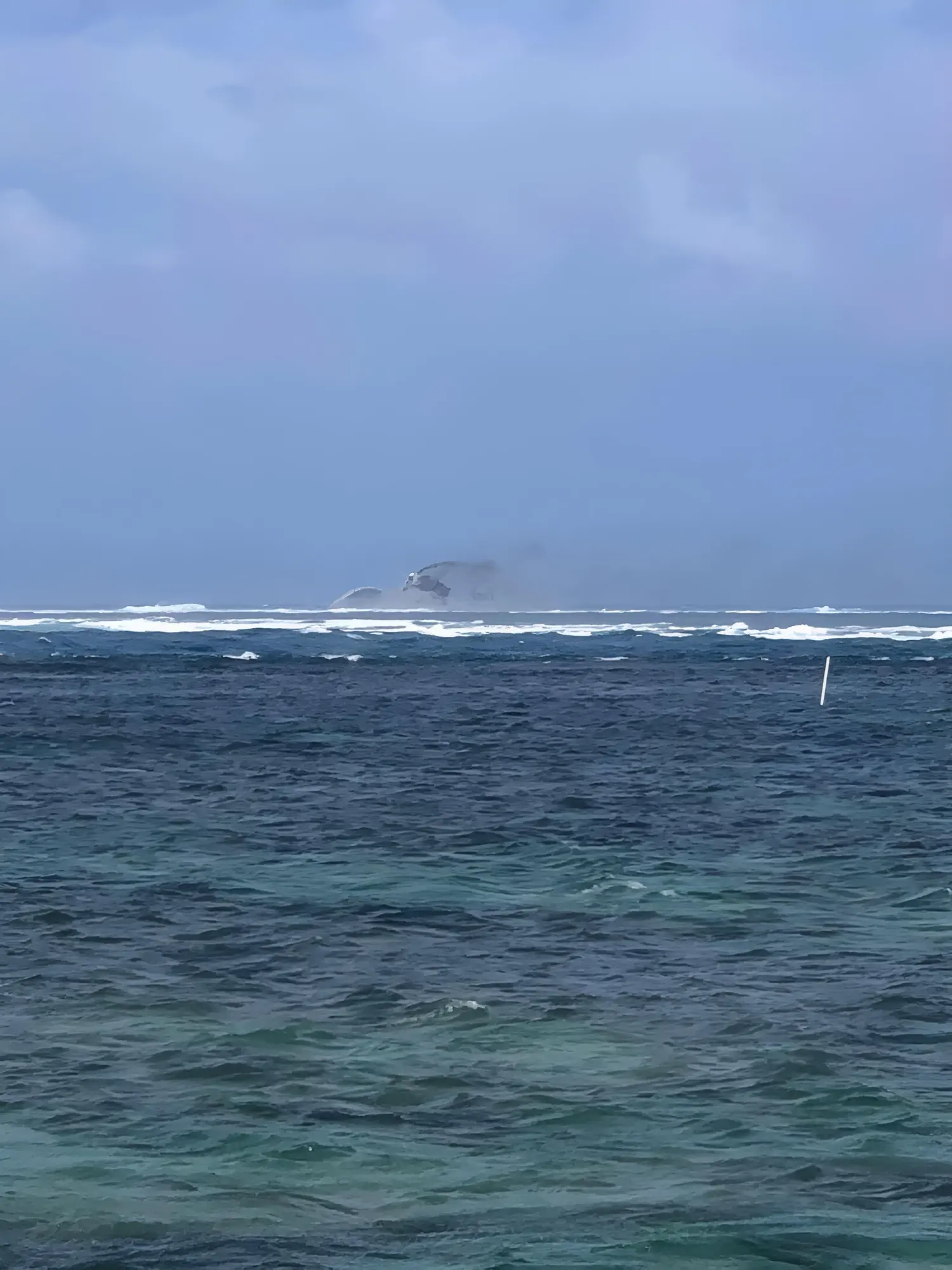Fishermen on the coast of Safata in Samoa were told to discard fish covered in oil from the New Zealand naval ship HMNZS Manawanui as authorities confirmed leakage of 200,000 litres of diesel.
The ship struck a reef last Saturday and sank the next morning. The incident has raised concerns about an impending ecological disaster.
Fishermen from various villages in the Safata district alerted authorities after finding their catch covered in oil and have been told to refrain from fishing in the area.
The Marine Pollution Advisory Committee (MPAC) confirmed approximately 200,000 litres of diesel had leaked into the ocean and substantial damage to the coral reef.
Senior matai of Safata district, Tuia Paepae Letoa told the Samoa Observer the discovery of fish covered in oil was reported for further investigation.
He said the community is starting to feel the effect of not being able to rely on marine life for their daily food source and income.
“Fishermen went out at sea and came with fish that was covered with oil, some were not aware that they could not go out to fish as this was their normal routine,” said Tuia.
“The wind and current have carried the oil towards the neighbouring villages and seawater is carrying it towards the Safata mangrove reserve. It is a very serious problem for the district…not only is this hurting our livelihood, damaging the reef and coast, it is also spreading to our other reserves we depend on.”
The HMNZS Manawanui is the biggest environmental disaster for the district. This has prompted district chiefs to call for an urgent meeting next week.
Tuia said the New Zealand Government is aware of the responsibility on their shoulders from the incident and international laws governing such disasters.
He said the district matai will convene a special meeting next week to discuss the Manawanui disaster adding the elders will not sit idle and will act for their future generation.
“We talk about the diesel, but we do not know if there are other liquid chemicals on the ship that we are not aware of and it is washing up on the shore undetected…it might not impact us now but we are thinking about the future generation.”
The senior matai expressed disappointment on how the government downplayed the situation claiming there was no oil spill except for oil leakages.
The Chief Executive Officer for the Ministry of Natural Resources and Environment, Lealaisalanoa Frances Reupena confirmed they have collected frozen fish suspected to be covered in fuel.
“These are being tested at SROS including samples of the marine waters, collected daily,” she said.
“More work is planned next week to test marine life including clams for contamination. A consultation with Safata District was held, one of many we hope to conduct.”
MPAC is working to collect evidence of cases of contaminated marine life reported during the consultation, for testing as part of continuing marine environmental assessments which commenced on Monday this week.
Lealaisalanoa said they have received reports from the villagers of dead turtles and that is under investigation. But so far there was no evidence of dead turtles.
Villagers from Sataoa have reported a foul smell coming from debris mainly food packages that have washed up on the shore.
MPAC said continuous assessment shows no signs of oil contamination on the reef and coastline and no explosives were onboard the Manawanui. Weapons and ammunition have been removed from the ship, the Committee added.













